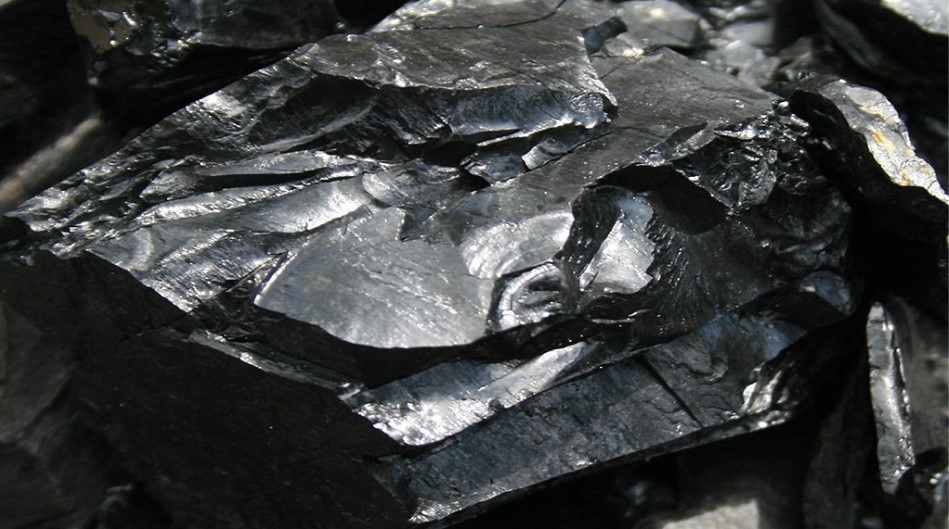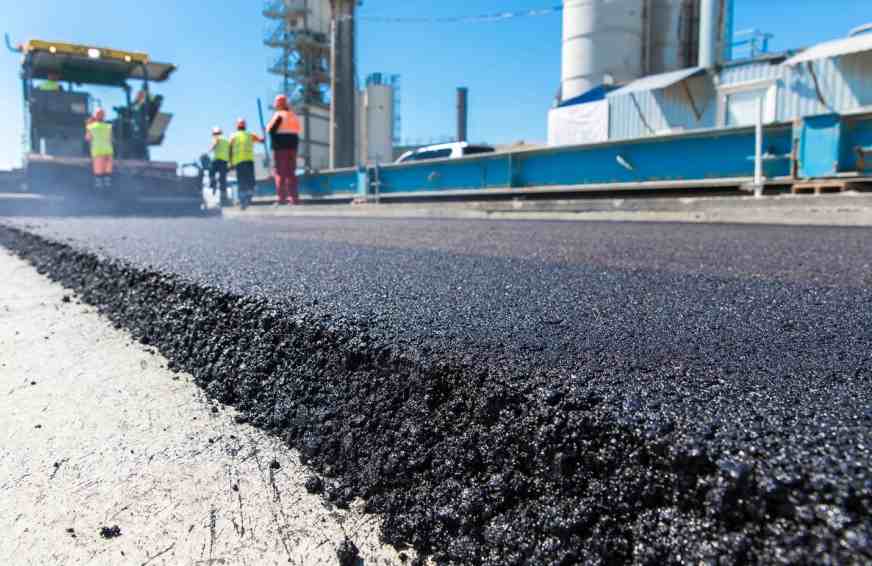Natural bitumen is a mineral and naturally occurring hydrocarbon that is found in mines and has many applications in different industries. One of the main applications is using it in the hot asphalt mix in road construction and pavement maintenance. When first extracted, natural bitumen is in the form of shiny black lumps, and in order for it to be applied in any intended industry, it’s necessary to process and refine it in powder form. Natural bitumen turns to dark brown or black powder with different granulation grades when processed. From 30-40 mesh or technically granulated bitumen to 80-400 mesh, known as micronized powder. There are also other features that matter when considering the Natural bitumen’s applications; for instance, ash content is also of great importance, and this parameter indicates the number of impurities in its composition.  Purity and granulation size are not much of importance when applying Natural bitumen in road construction, as the powder is used in hot asphalt mix to sustain and reinforce the mix and increase its resistance and durability. This mix is remarkably higher in quality than regular petrochemical asphalt. The solid inner bond between natural bitumen molecules improves the total persistence of the asphalt mix and, as a result, the overall pavement enhancement.
Purity and granulation size are not much of importance when applying Natural bitumen in road construction, as the powder is used in hot asphalt mix to sustain and reinforce the mix and increase its resistance and durability. This mix is remarkably higher in quality than regular petrochemical asphalt. The solid inner bond between natural bitumen molecules improves the total persistence of the asphalt mix and, as a result, the overall pavement enhancement.
Bitumen in natural asphalt
Natural bitumen, Gilsonite, or Natural asphalt is the popular name used for a black and brittle rock naturally occurring and extracted from the underground mines. This helpful substance is applied in many industries, whether it be road construction or in more delicate sectors such as cosmetics production. It is also used as a coating and protective layer in some applications. But this natural mineral is mostly utilized in road construction as it can improve the asphalt’s quality to a great extent. When added to the hot asphalt, natural bitumen can grant higher resistance and durability to the pavement against deformation due to heat and fractions in low temperatures, wheel traces, and also water and humidity resistance. This mixture is commonly used in high-transit routes or paths which are posed to adverse conditions. It can be mentioned that many countries such as France, Australia, Singapore, Japan, Germany, and Indonesia, are accounted as countries that apply natural bitumen in their constructions and road pavement as they are leading countries in export and transit and require high-quality asphalt pavement to both decreases the destructions and malfunctions and as the result, less budget used on yearly road maintenance. Thus choosing high-quality bitumen is of high importance in order to meet these expectations. Our sales executives are ready to help you with any further information you require to have the best deal possible.
Natural bitumen and asphalt
Bitumen is a vast and general term for any kind of hydrocarbon-based material which is composed solely of carbon and hydrogen, can be solved in both aromatics, materials with circular or cyclic molecular structures which are noticeably strong and stable bonding, and aliphatic which are fat-based and organic compounds in which unlike the aromatics, carbon atoms form open chains rather than circular arrangement. These substances are also highly flammable and are becoming widely practical as the industries grow and need new and more efficient materials in order to evolve and improve. As mentioned, Bitumen includes a wide range of materials, but natural bitumen also known as Gilsonite specifically is different from other types of bitumen as it’s naturally occurring under the Earth’s surface due to cruet oil’s escape from the reservoir stone’s pores and rifts.  This escape is caused by severe pressure and leads to natural bitumen formation. This substance is used in many industries and mainly in road construction and asphalt mix to enhance the overall quality, such as resistance and durability, compared to typical petroleum-based asphalt made in petrochemical factories. As the molecule bonds are more robust in natural bitumen, adding it to the asphalt mix can result in higher viscosity and also helps the asphalt to harden faster and reinforces the texture. Since adding high-quality natural bitumen to the hot asphalt mix is very important to have the expected improvements, it’s substantial to purchase the bitumen from reliable manufacturers and suppliers who are directly connected to the mine owners or have a brilliant reputation in the markets. Our sales executives are here to help you have the best experience by providing the best advice and consults.
This escape is caused by severe pressure and leads to natural bitumen formation. This substance is used in many industries and mainly in road construction and asphalt mix to enhance the overall quality, such as resistance and durability, compared to typical petroleum-based asphalt made in petrochemical factories. As the molecule bonds are more robust in natural bitumen, adding it to the asphalt mix can result in higher viscosity and also helps the asphalt to harden faster and reinforces the texture. Since adding high-quality natural bitumen to the hot asphalt mix is very important to have the expected improvements, it’s substantial to purchase the bitumen from reliable manufacturers and suppliers who are directly connected to the mine owners or have a brilliant reputation in the markets. Our sales executives are here to help you have the best experience by providing the best advice and consults.
Natural rubber modified bitumen
Natural bitumen is not an entirely flawless substance and in order to rectify these flaws, it must be modified by utilizing some additives and fillers such as cement, concrete, and most essentially, rubber. Bitumen isn’t solely able to perform a perfect role in road pave. Usually, due to high viscosity and unstable performance against temperature variations that cause deformation and low lifespan, it’s preferably mixed with some kinds of modifiers to improve and enhance its performance. Rubber has proven to be the most essential additive. By adding rubber powder to bitumen, the particles form a kind of internal physical interaction. Rubber powder is porous, and when mixed with bitumen, these pores are filled by absorbing some parts of aromatics that exist in bitumen. To provide more filling, other aromatic and petroleum mixtures are added to the bitumen and rubber mix. The more rubber pores filled and bloat, the better the bitumen becomes modified. Research and experiments have indicated that adding approximately 26% rubber powder to bitumen can increase its softening point by 40% and elastic reversibility by 366%. The other enhancement resulting from rubber addition is heat tolerance—the lower the heat tolerance, the more strength against cracking and fraction. Having mentioned the advantages of adding rubber to bitumen, this additive can be included as one of the most effective modifiers used in this application.
Liquid natural rubber modified bitumen
Liquid bitumen’s viscoelastic behavior can be modified by utilizing some polymers. These materials preserve the viscosity of bitumen by creating a polymer network and reinforcing the bitumen features. One of the most efficient modifiers is rubber which is added to the bitumen as a rubber powder. This powder has a porous structure.  These pores start to fill and bloat by the destruction and absorption of bitumen particles; these two procedures result in more solidity and elasticity in the liquid phase of bitumen. These improvements are the results of an increase in particles’ interspace, which eradicates the bitumen viscosity and grants a heavy and stiff structure to its texture. This modified bitumen can be applied in many fields, notably road construction and asphalt modifications. When adding rubber modified bitumen to asphalt mix results in the following enhancements:
These pores start to fill and bloat by the destruction and absorption of bitumen particles; these two procedures result in more solidity and elasticity in the liquid phase of bitumen. These improvements are the results of an increase in particles’ interspace, which eradicates the bitumen viscosity and grants a heavy and stiff structure to its texture. This modified bitumen can be applied in many fields, notably road construction and asphalt modifications. When adding rubber modified bitumen to asphalt mix results in the following enhancements:
- Achieve a softer mixture at low temperatures and a stiffer one at high temperatures that results in less fraction, cracking, sagging, and grooving and, in general, more overall persistence.
- Reduction of viscosity and also density improvement, which helps to facilitate the production procedure while the mix is being produced.
- It helps the bitumen layer applied to the aggregates and paving base to form a thicker layer with better cohesion.
- Adhesion and cohesion improvement that helps to reduce fractions and texture fragmentation
- Reducing asphalt thickness and usage on the surface, which consequently reduces paving and maintenance costs.
Providing these reasons and proof, rubber is considered one of the best modifiers to enhance bitumen performance. Our diligent and professional sales team is here to ensure that none of your questions remain unanswered. Thus you can reach out by leaving your contact information so that they can contact you at the first appropriate time.

0
0